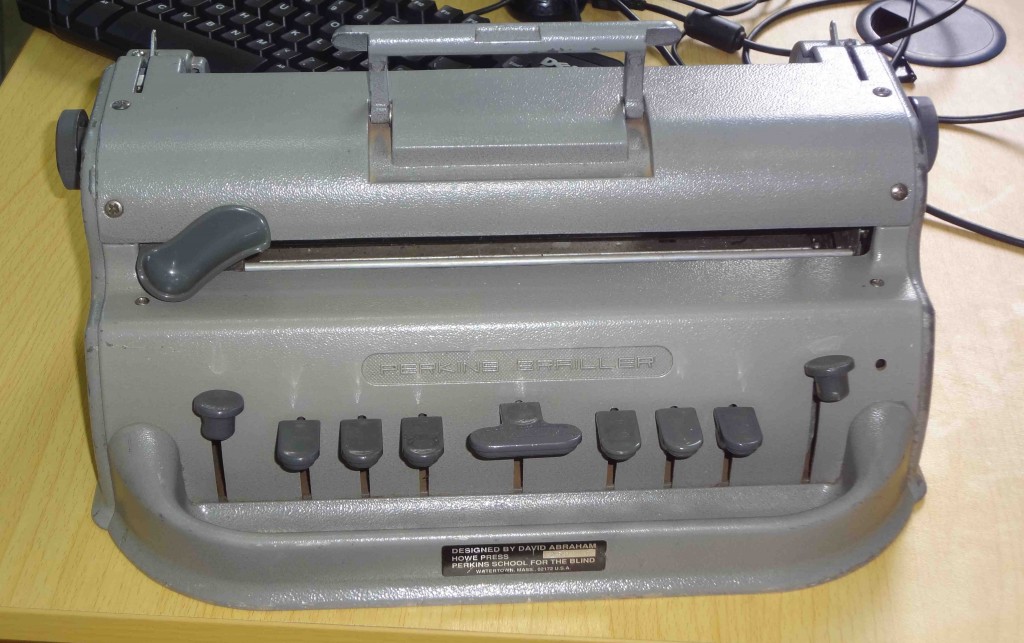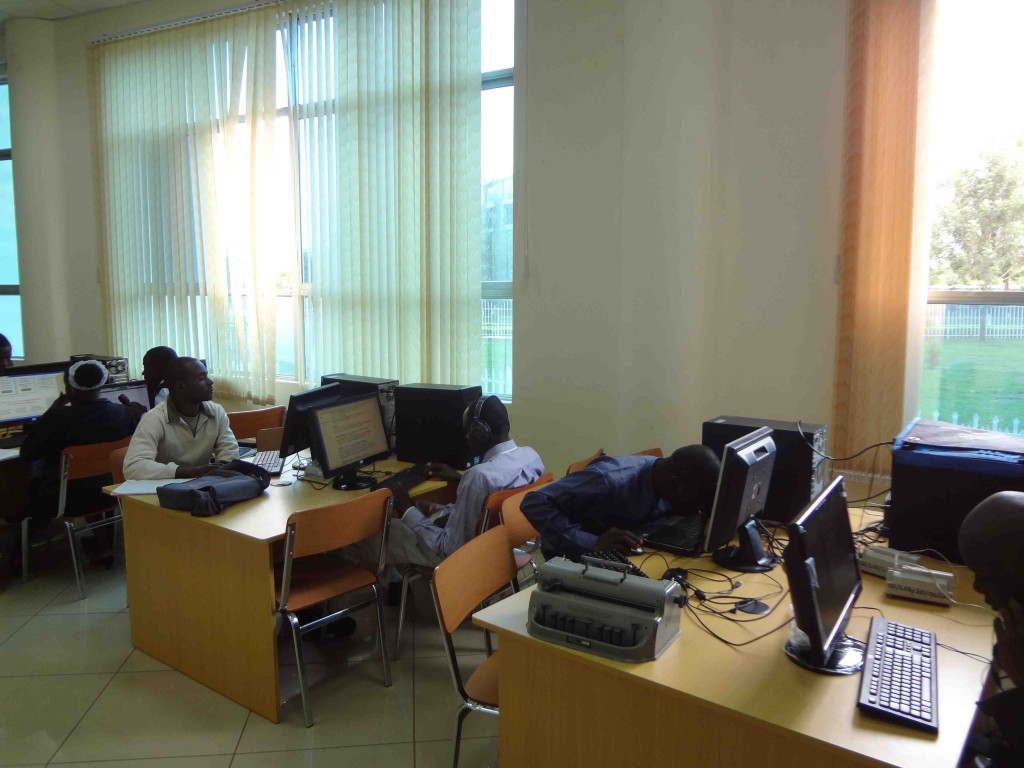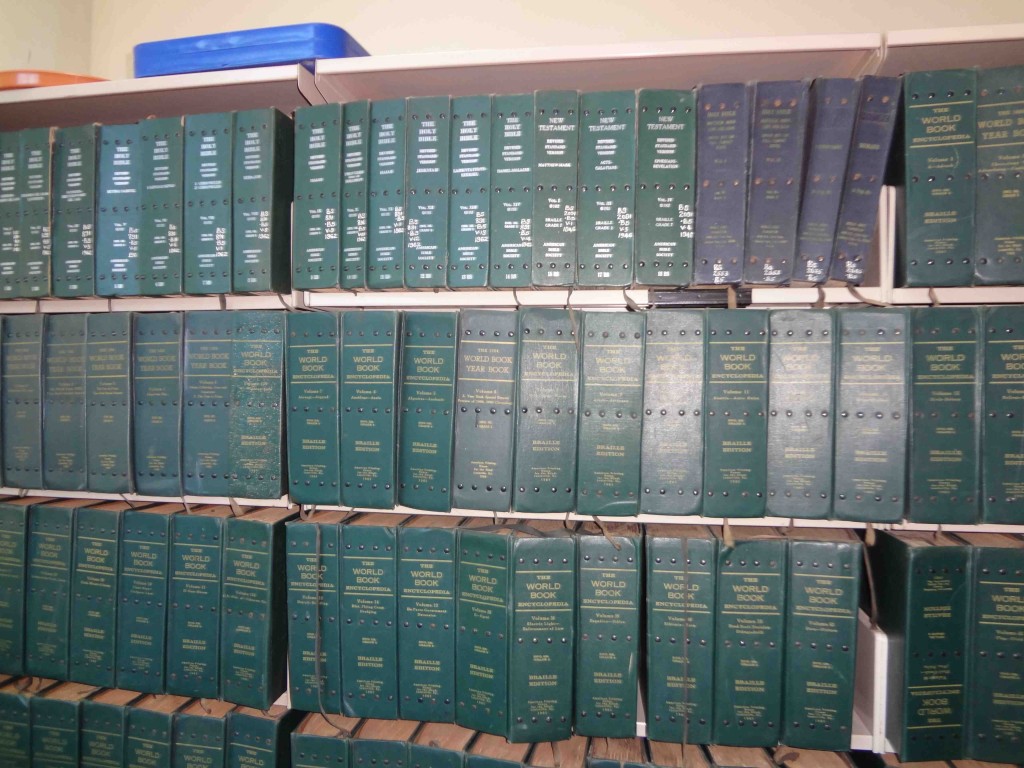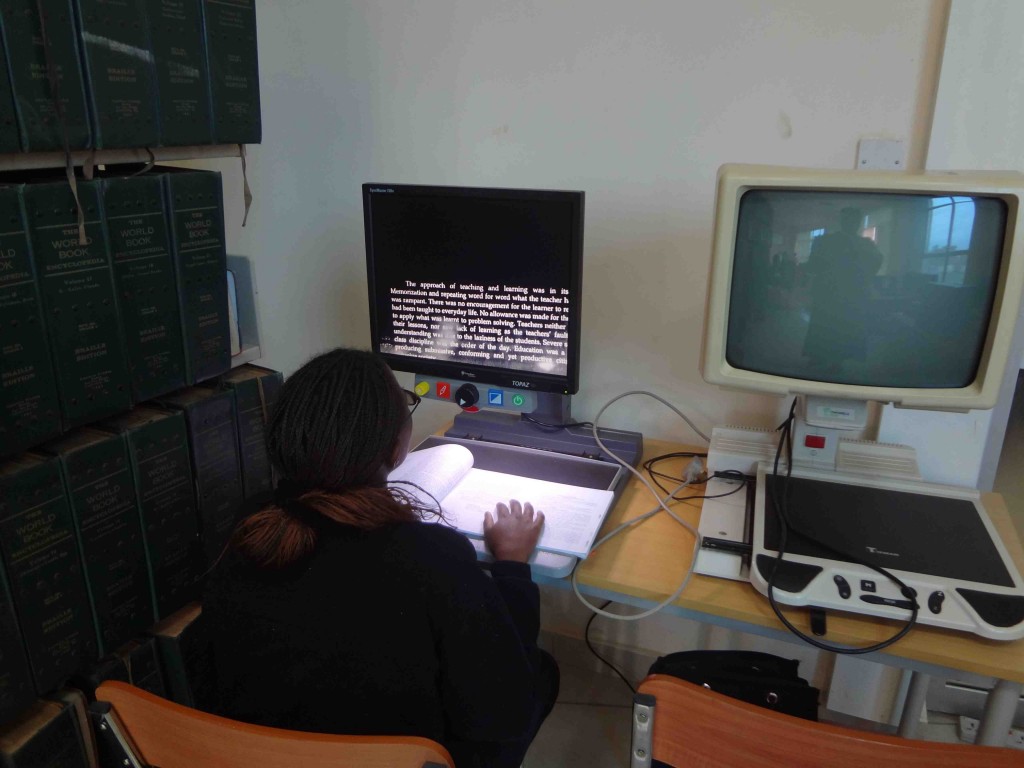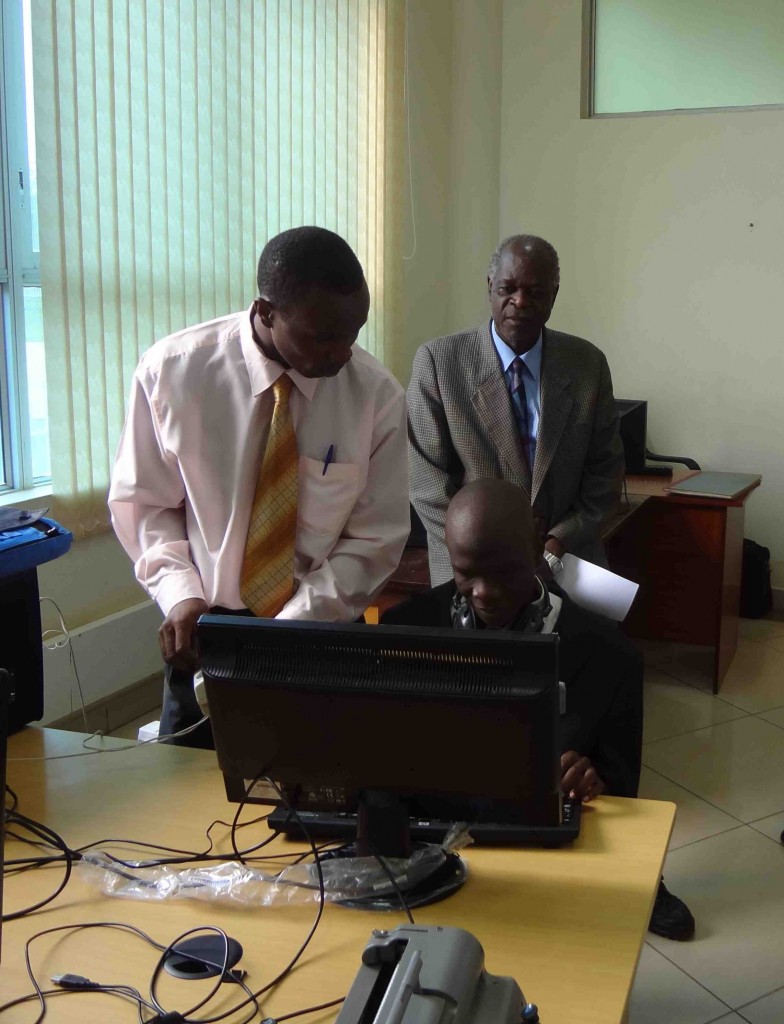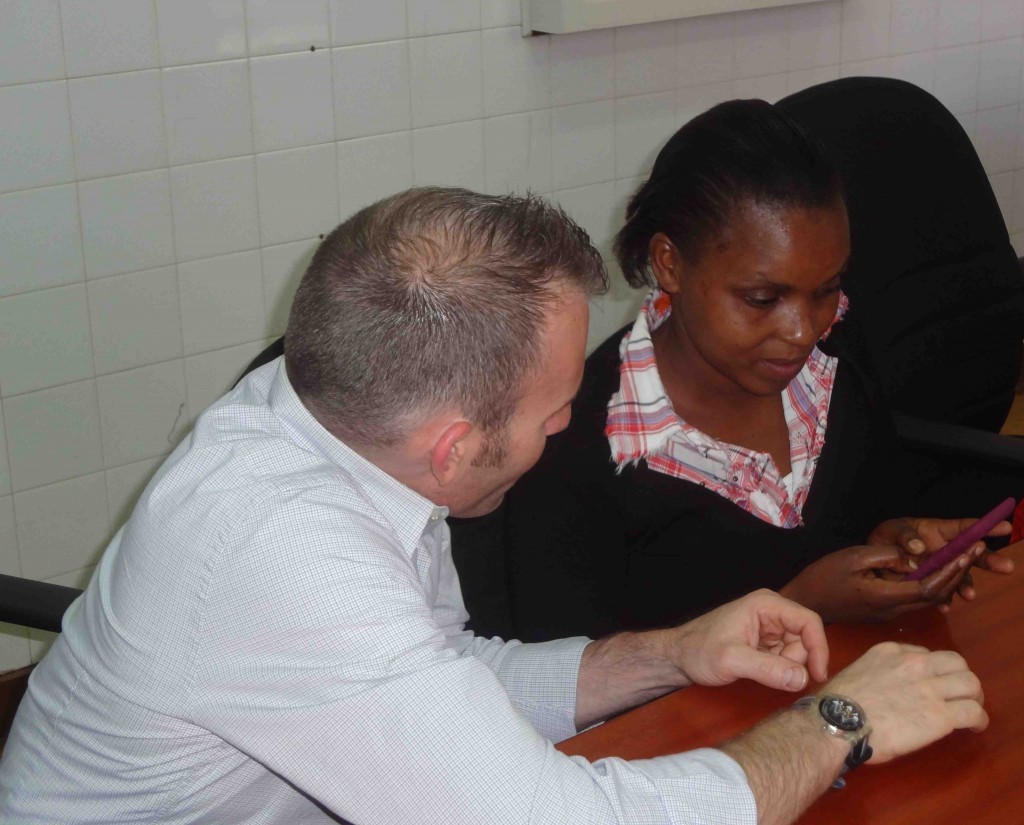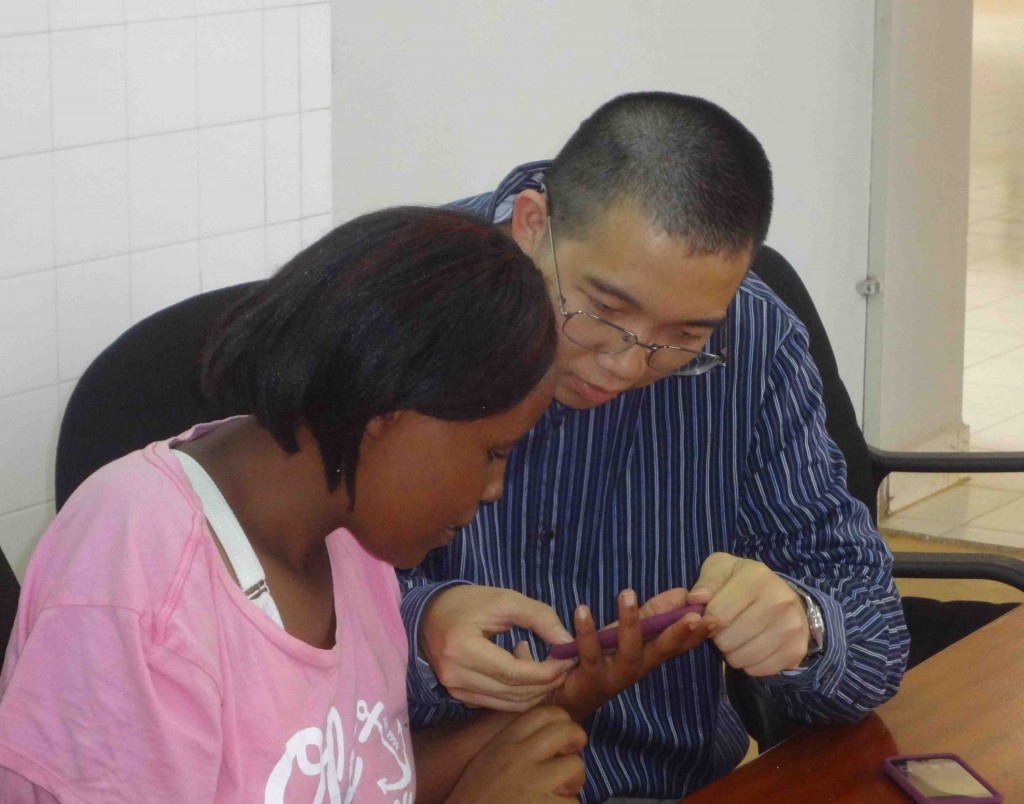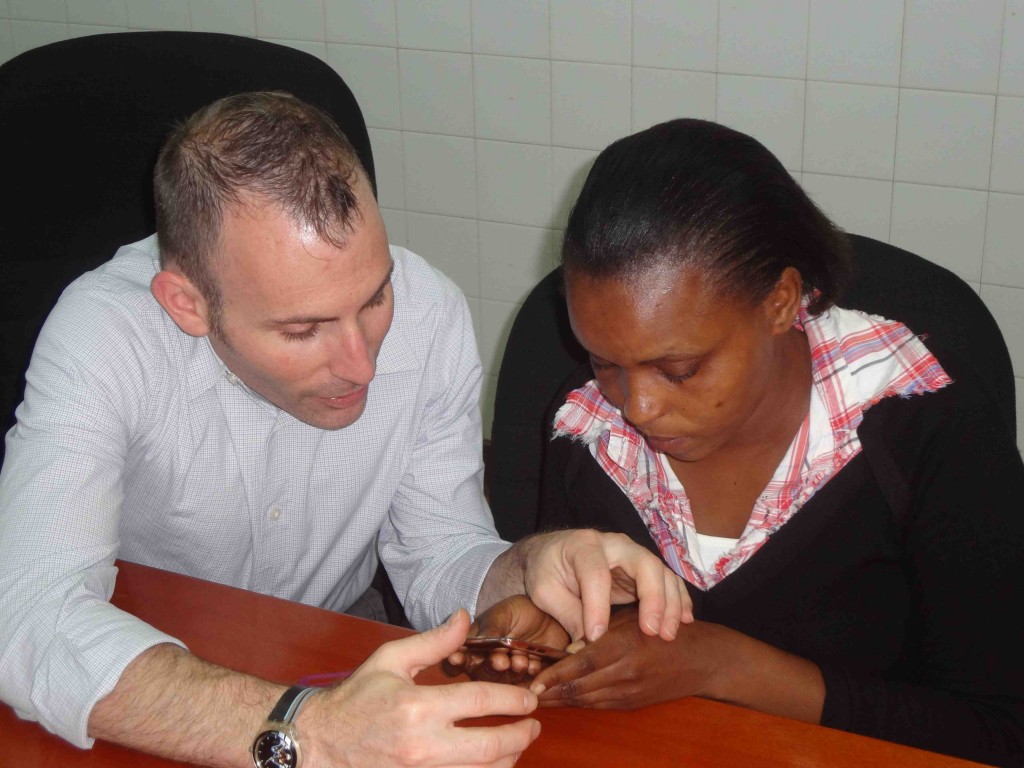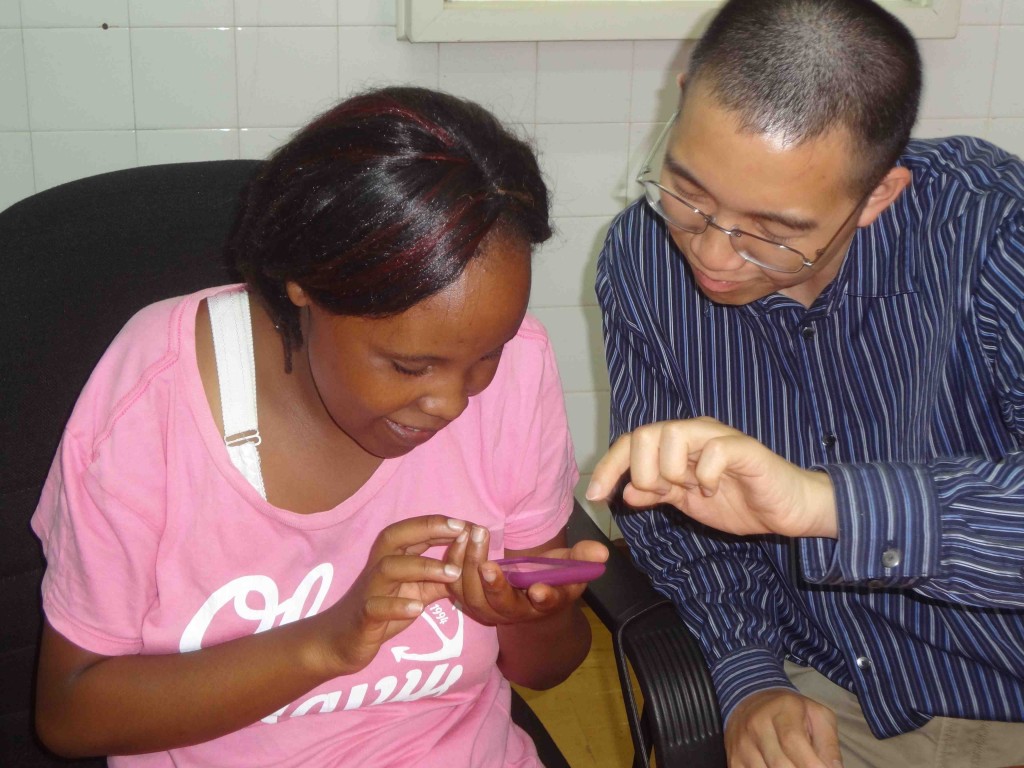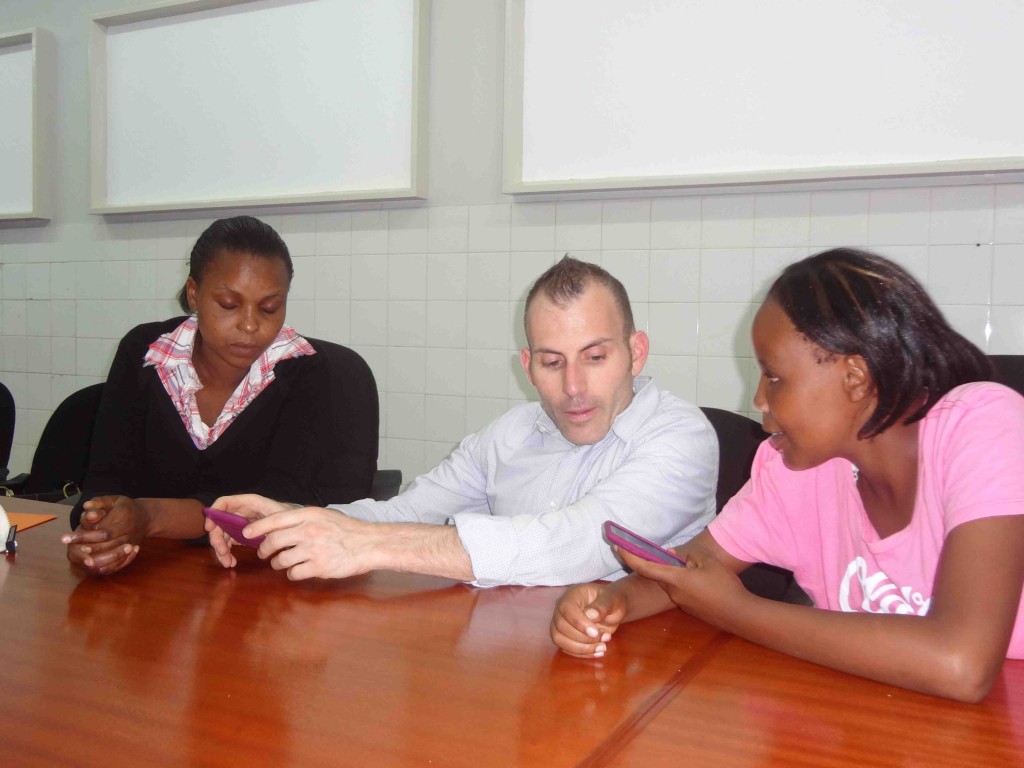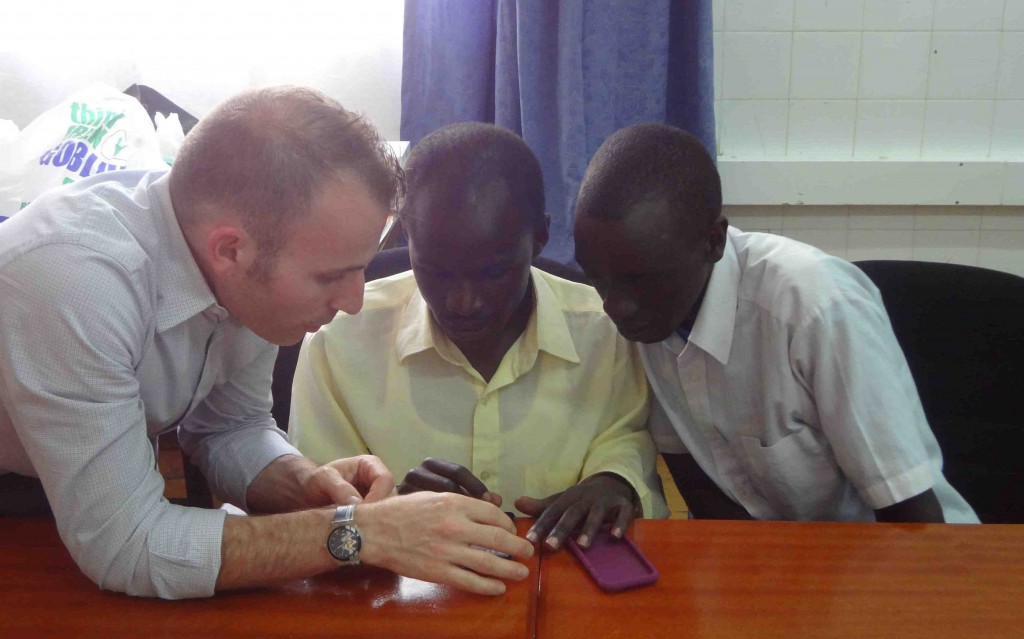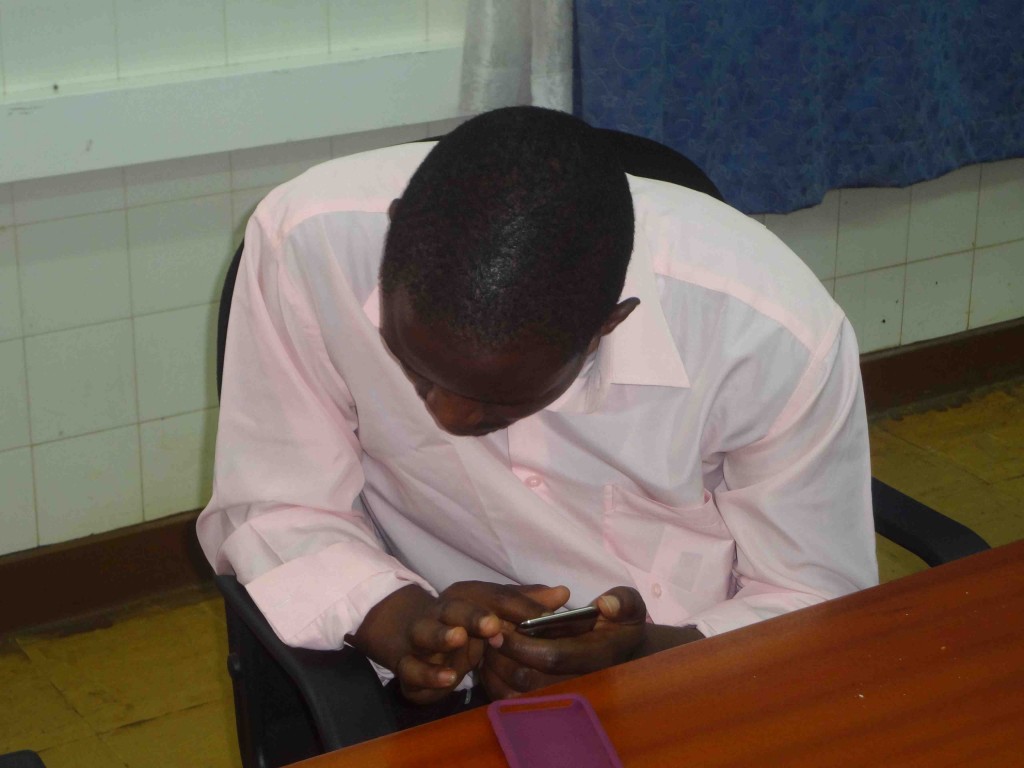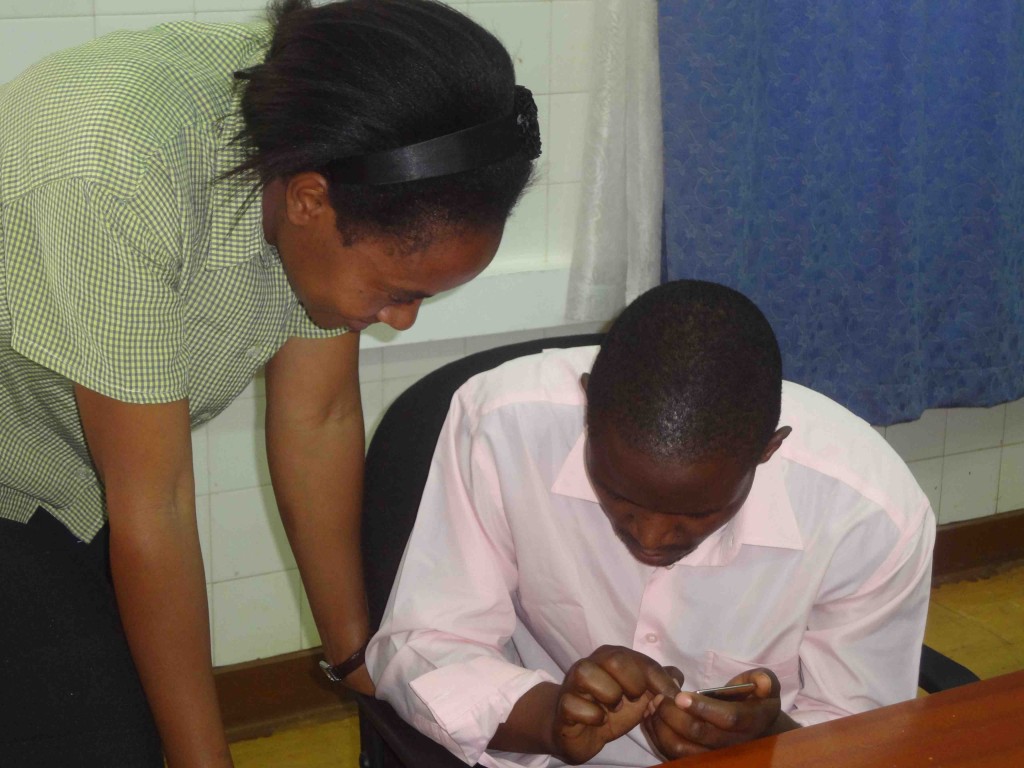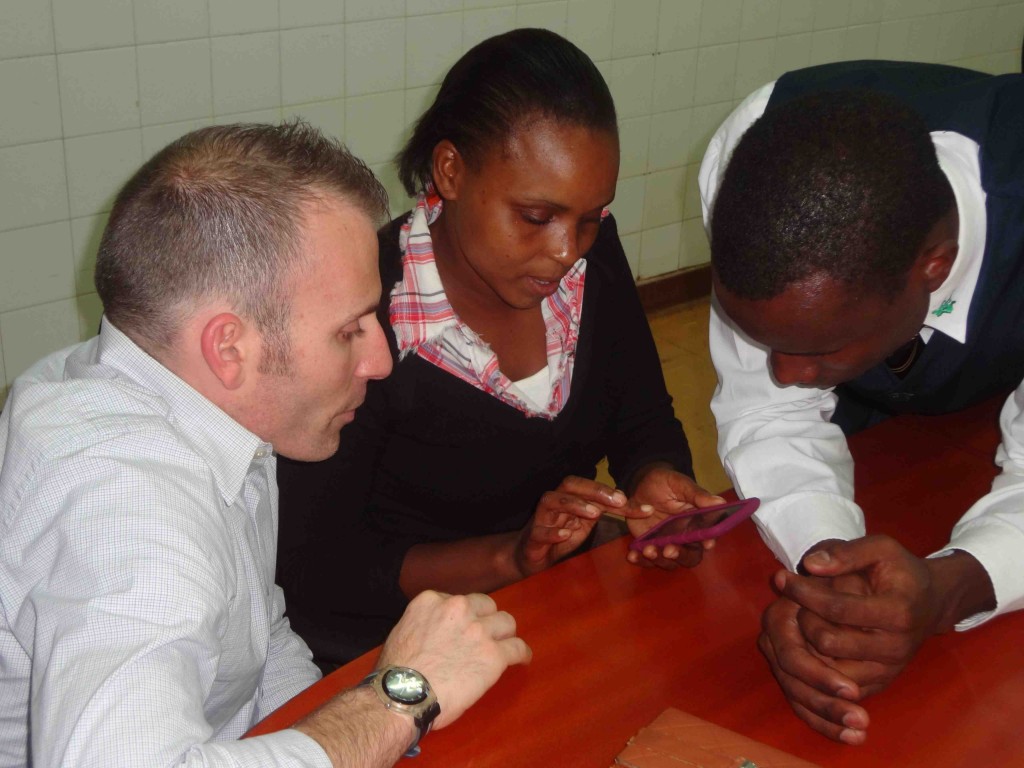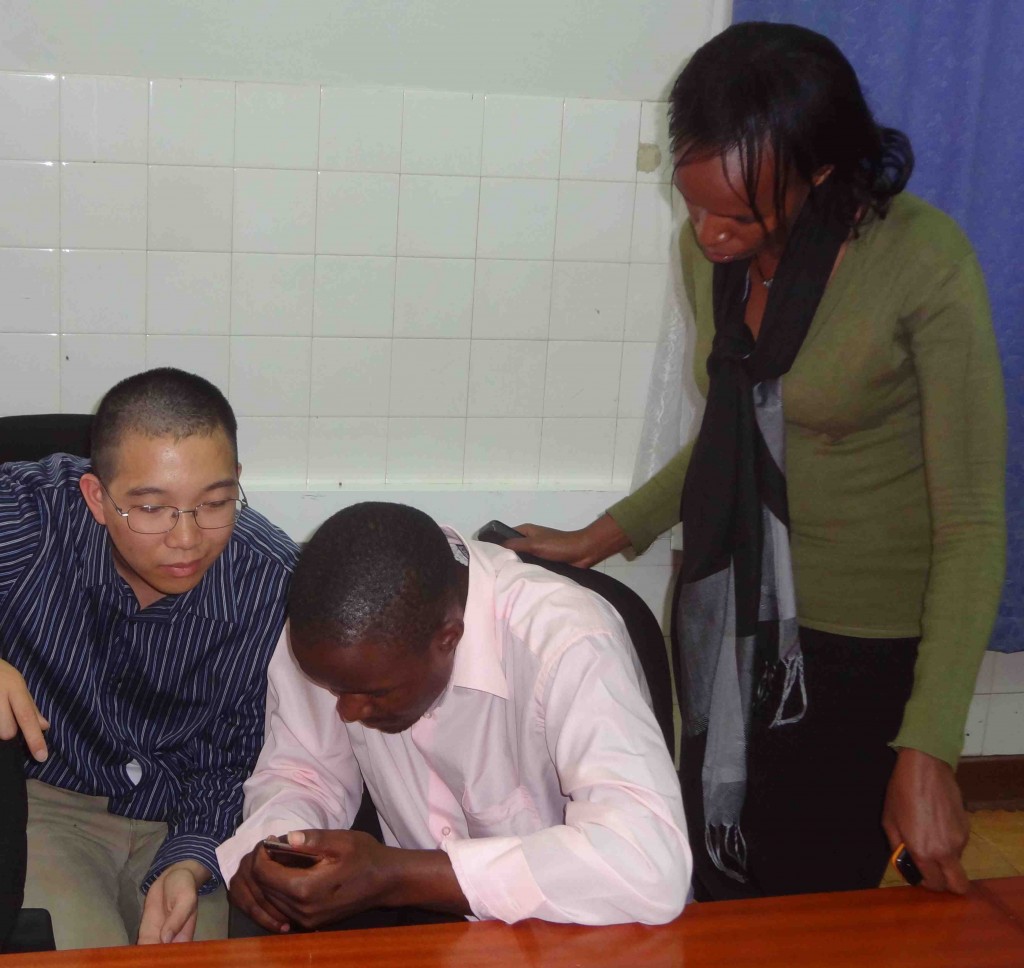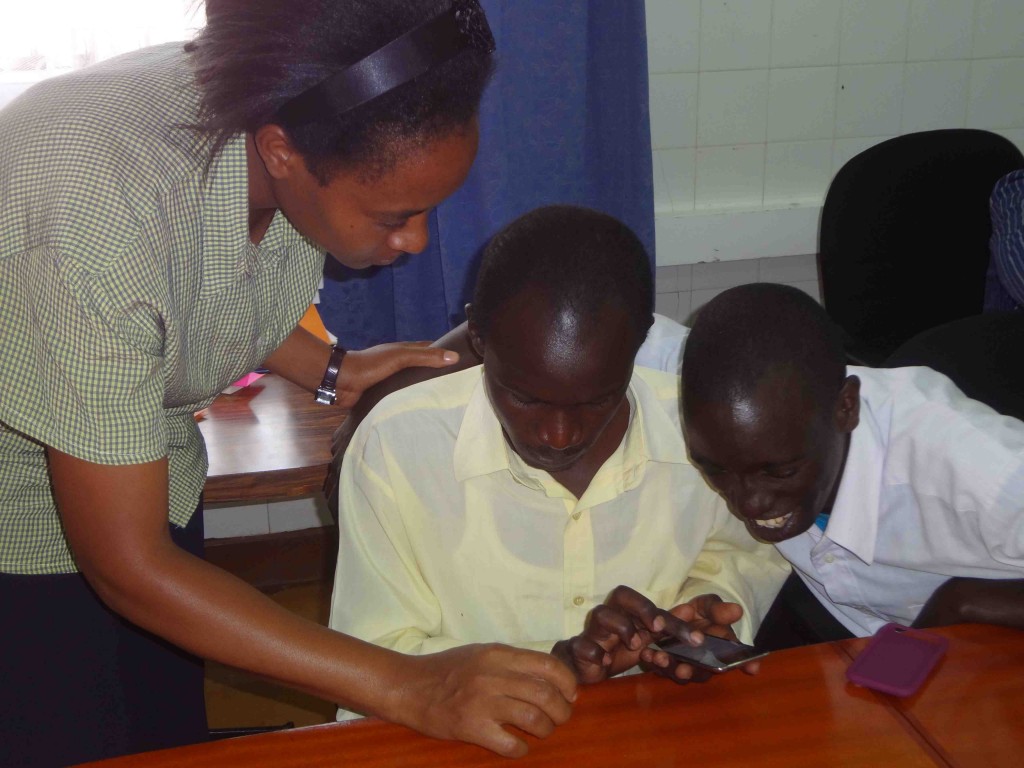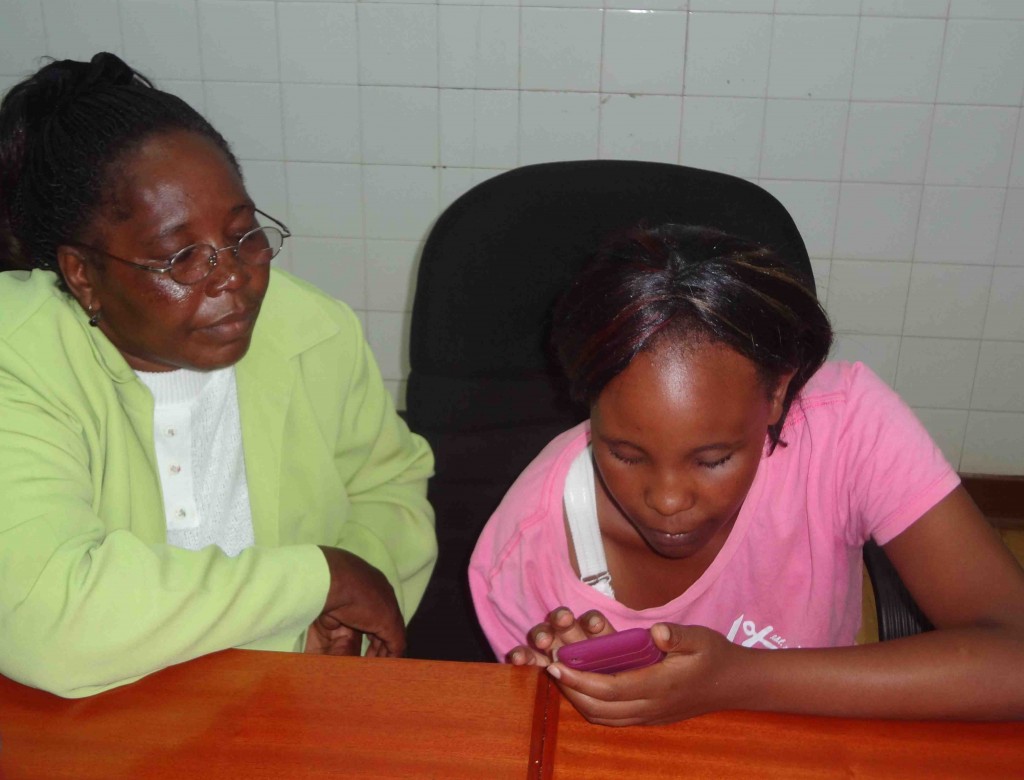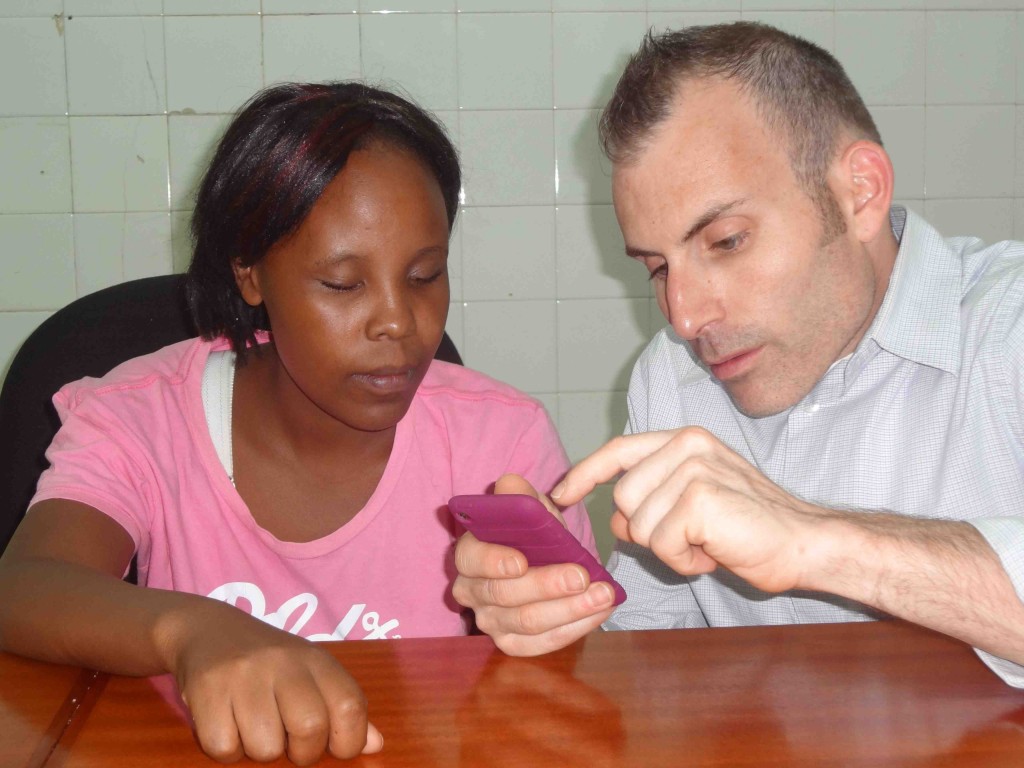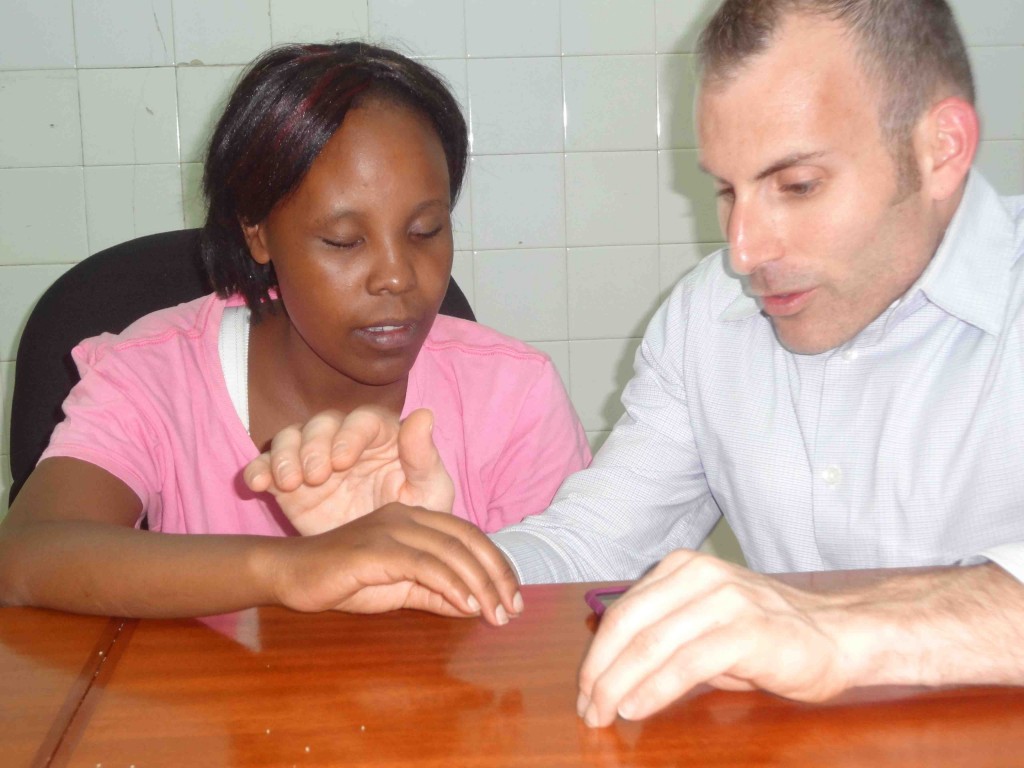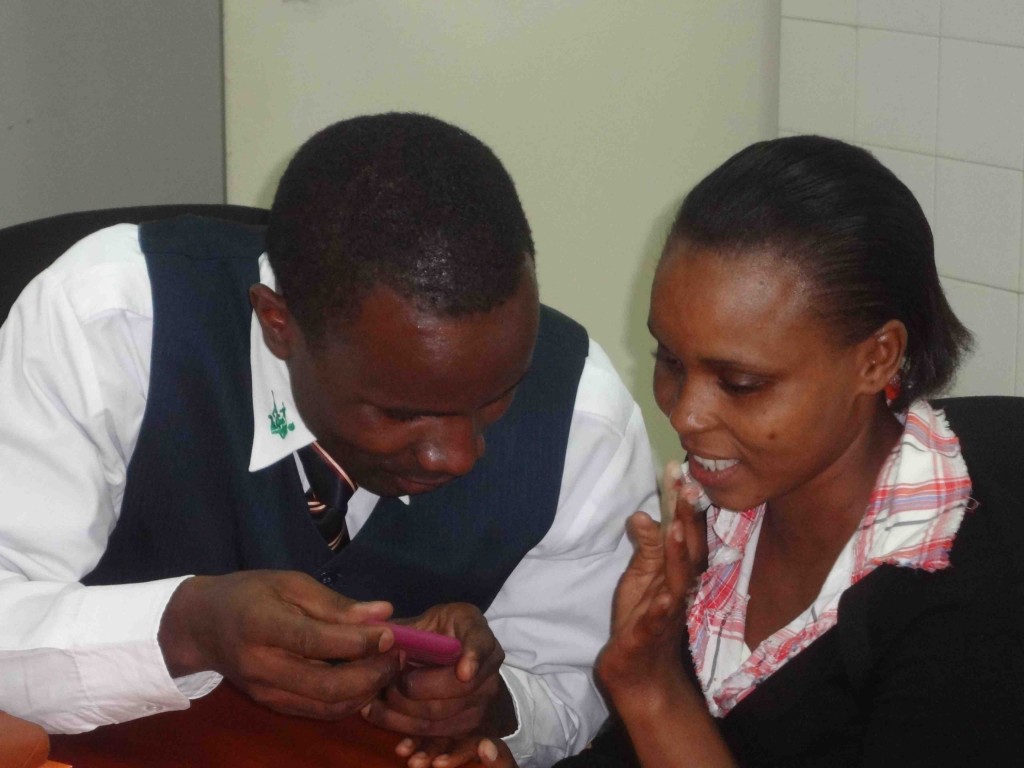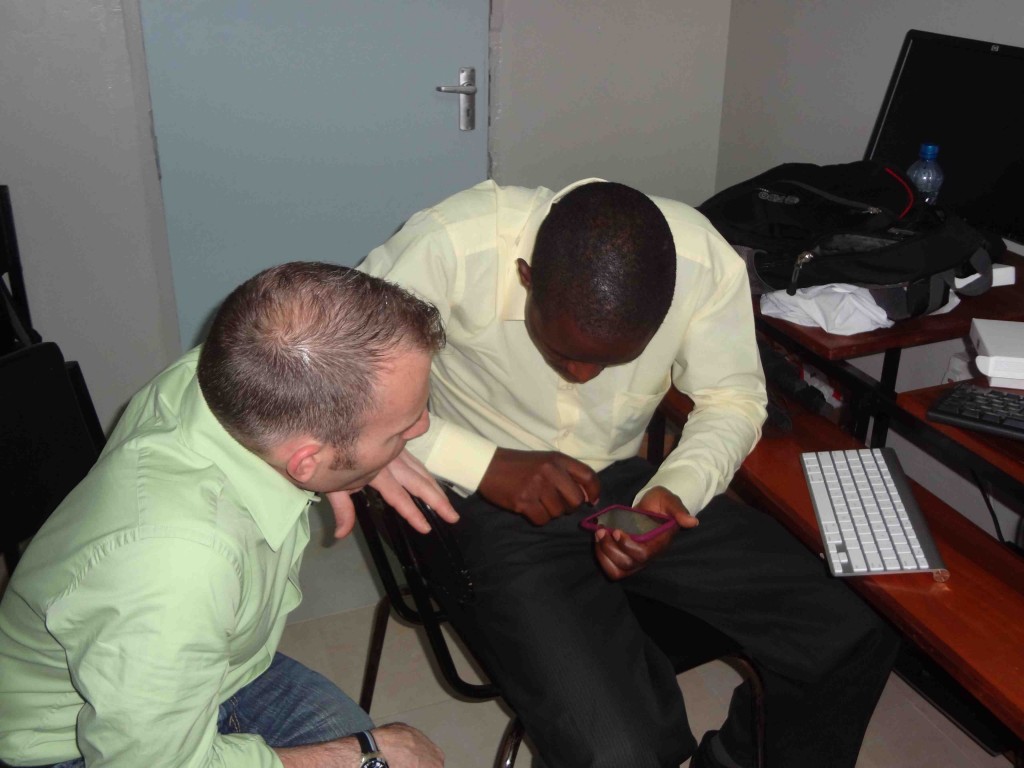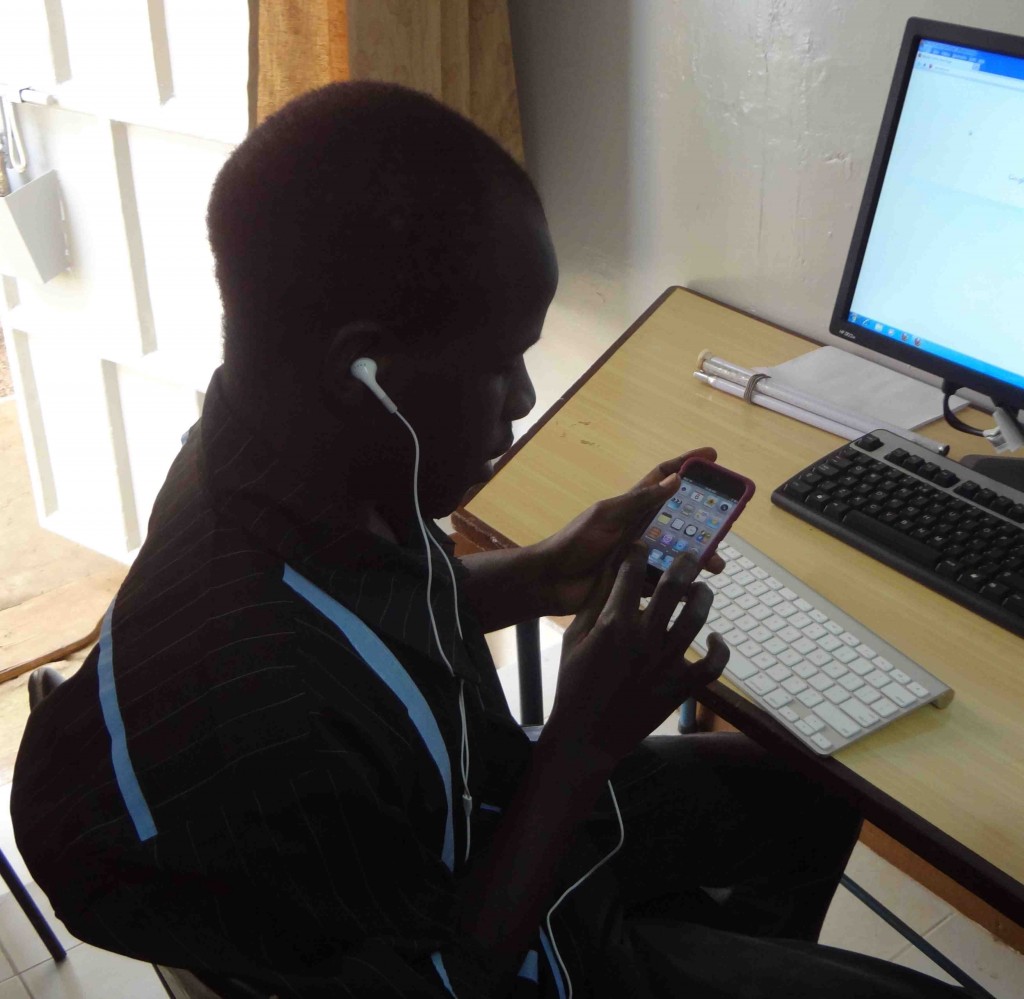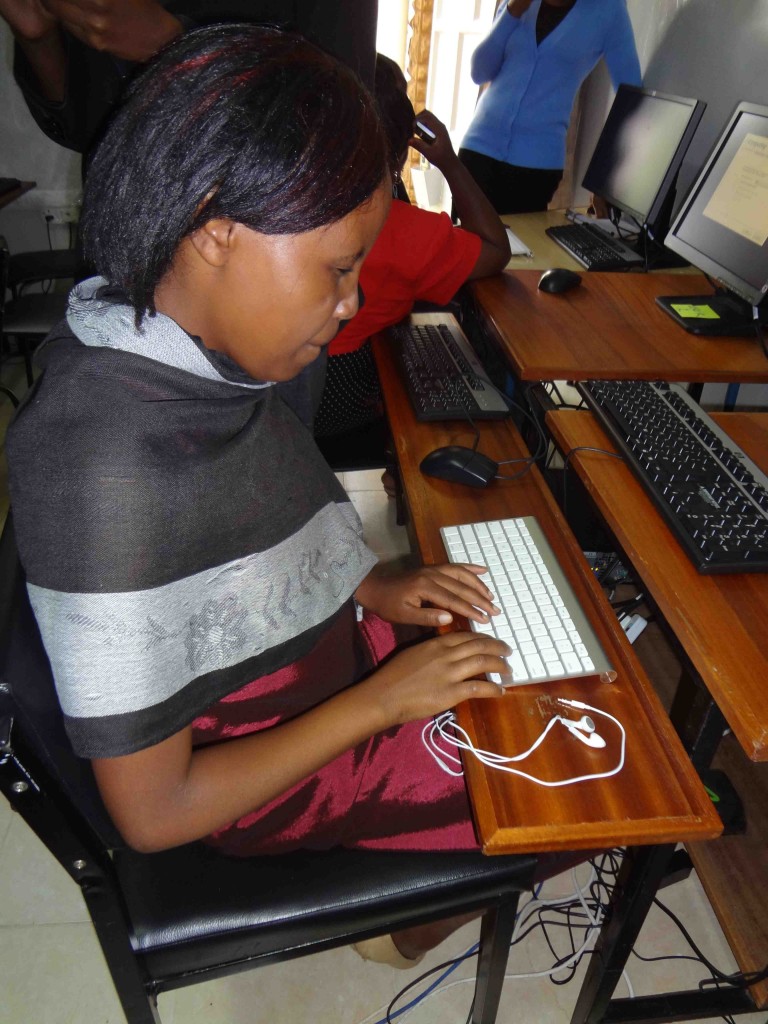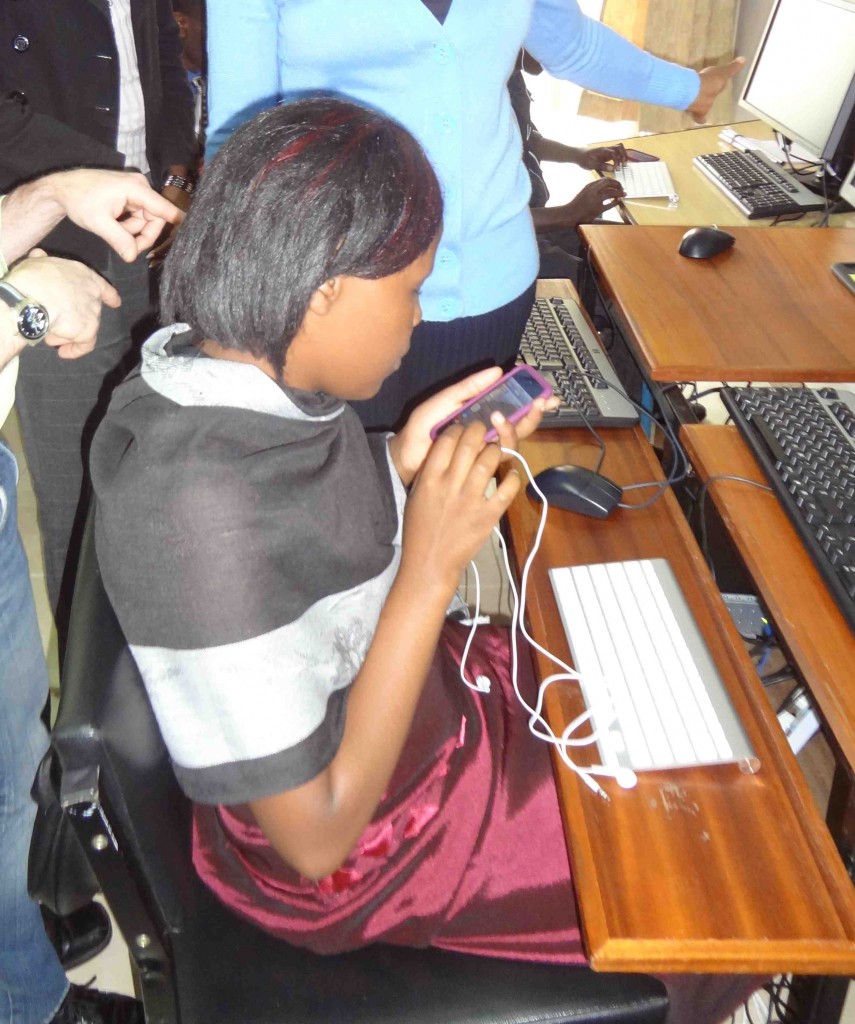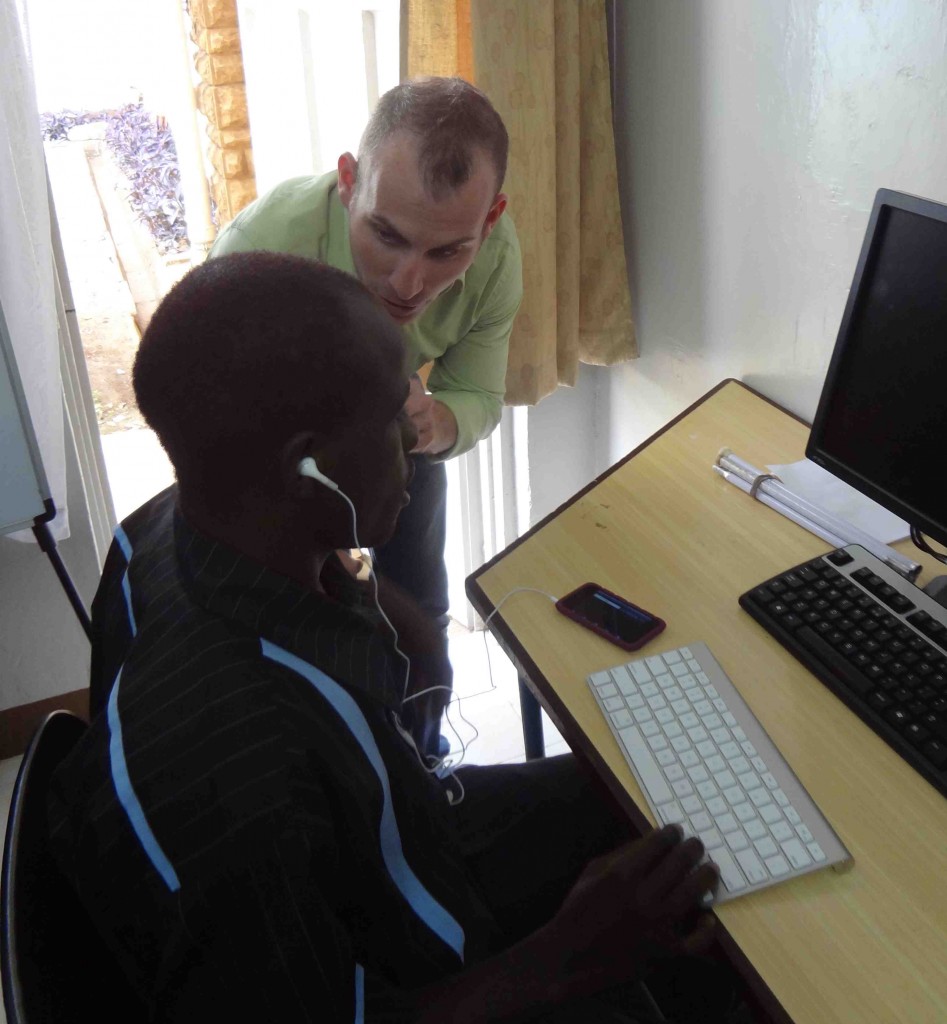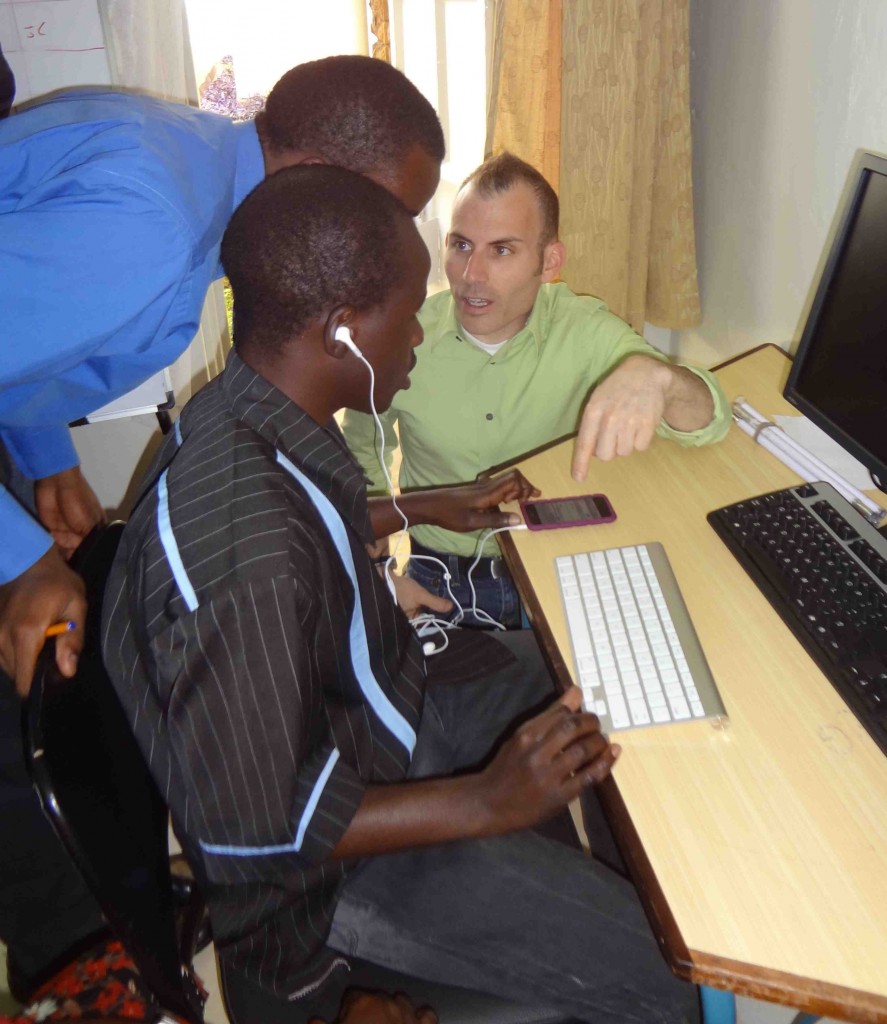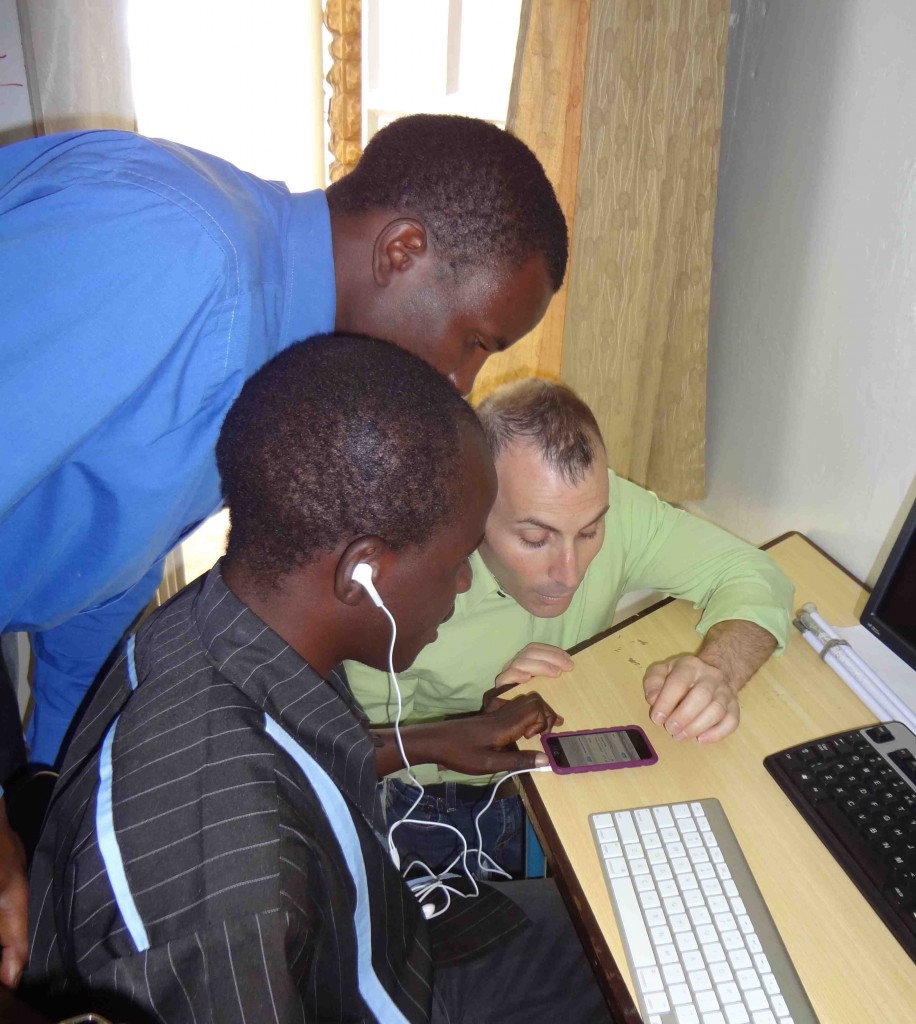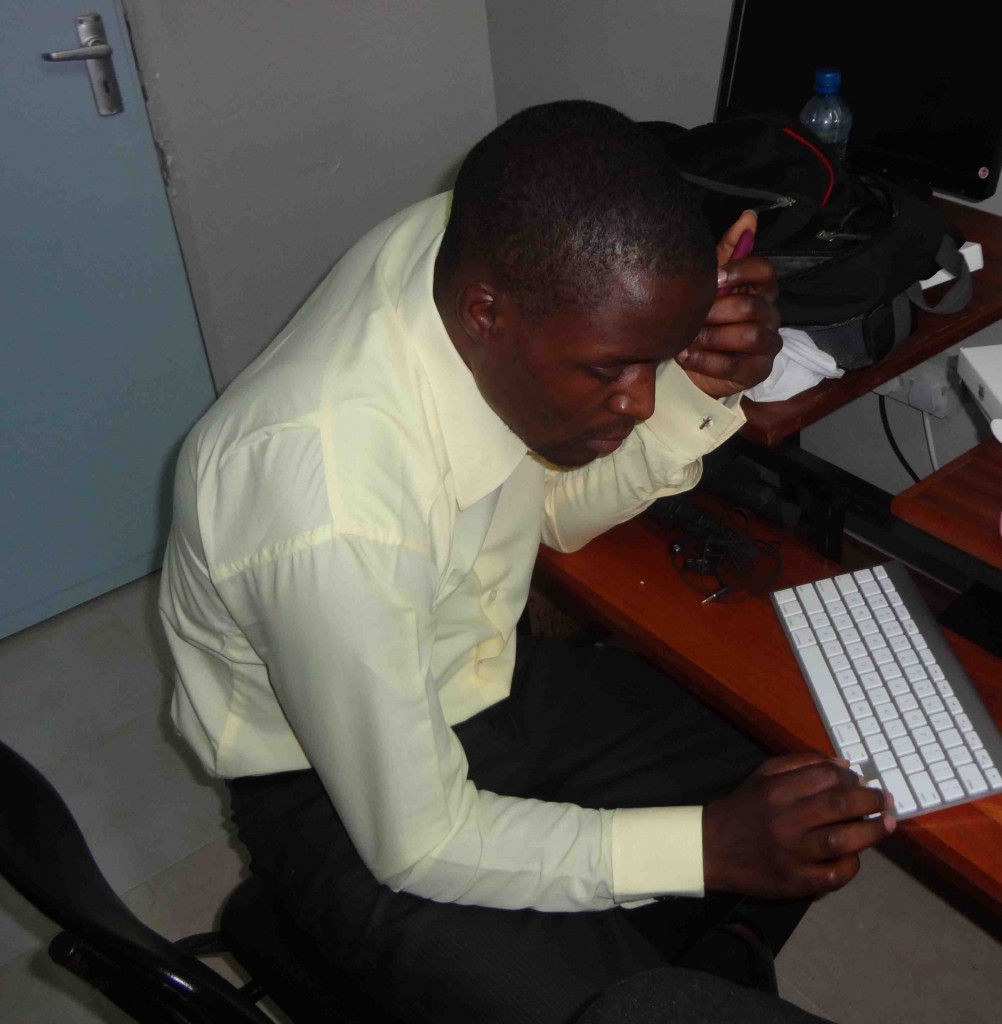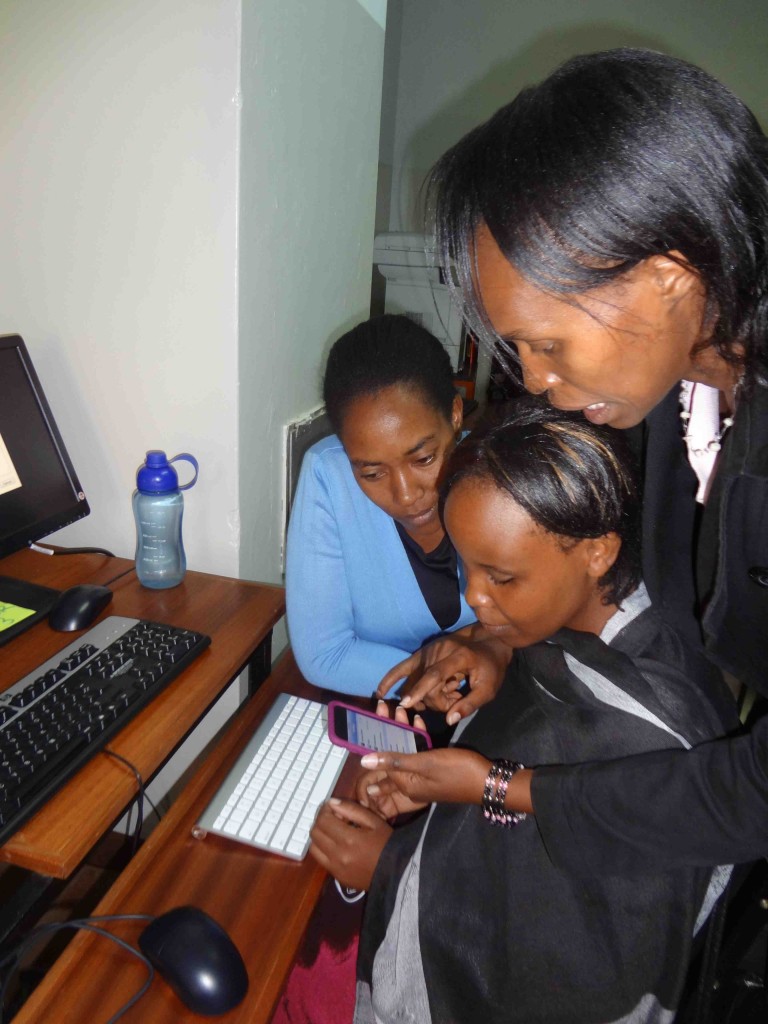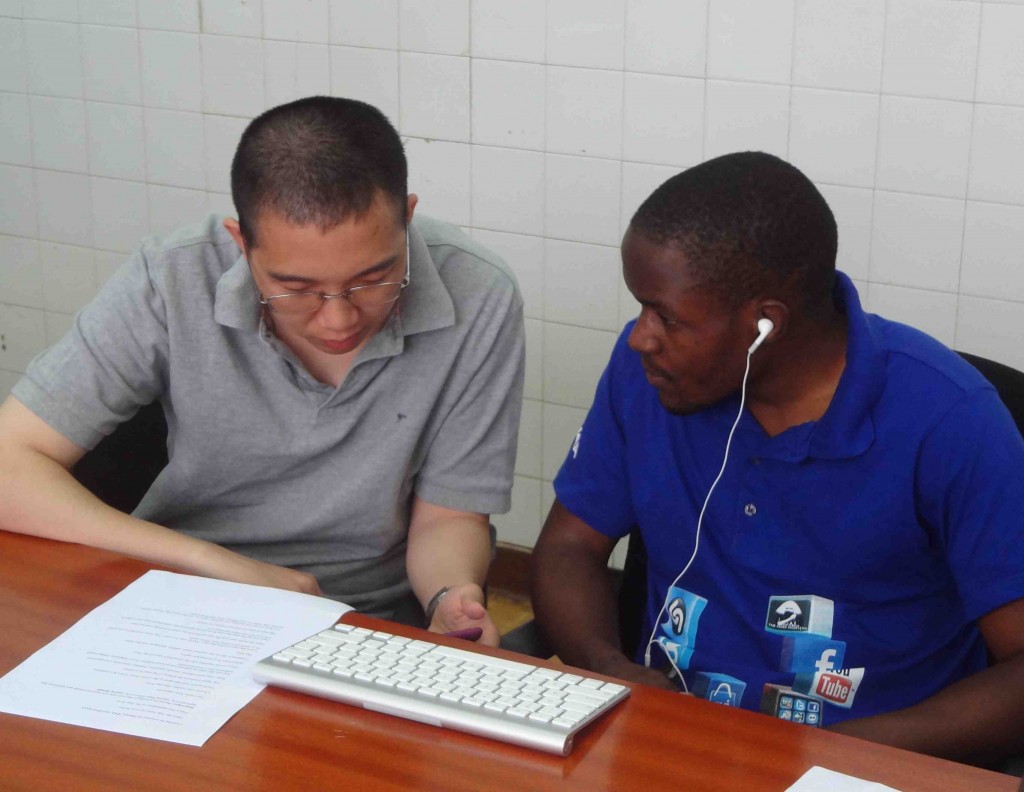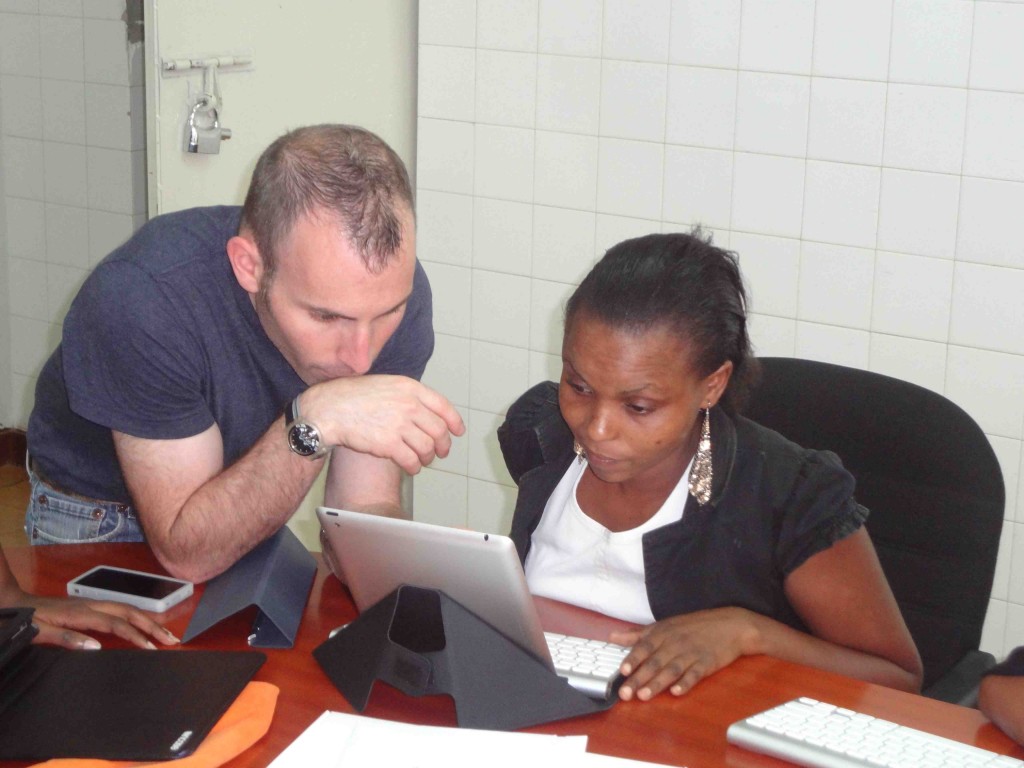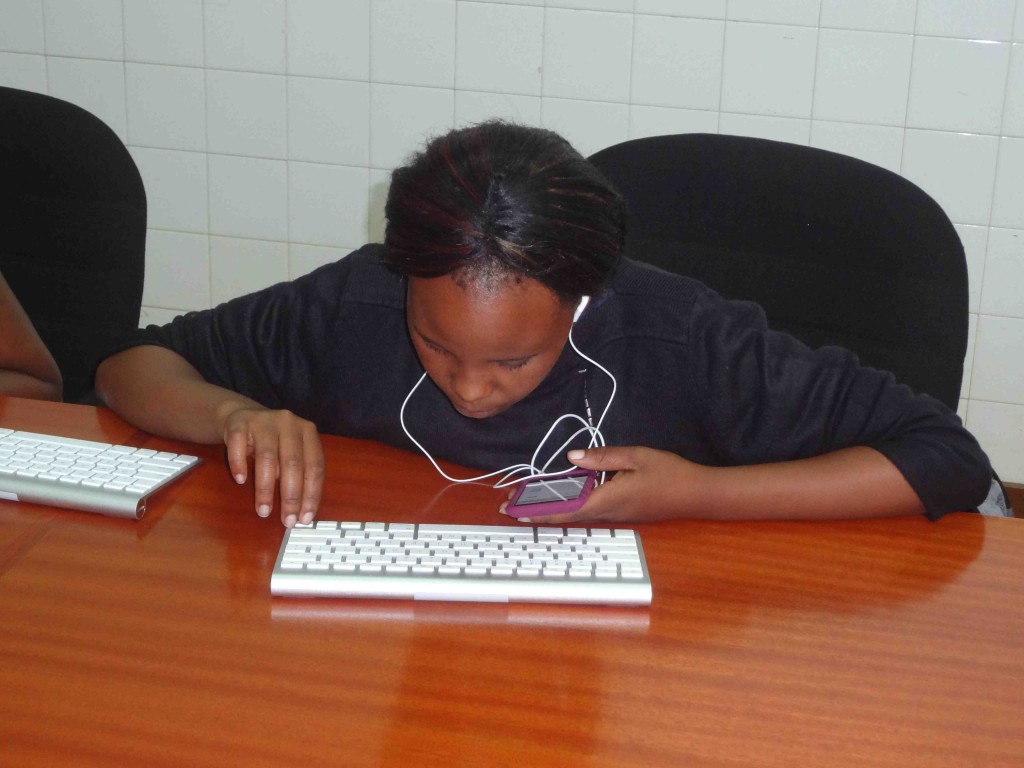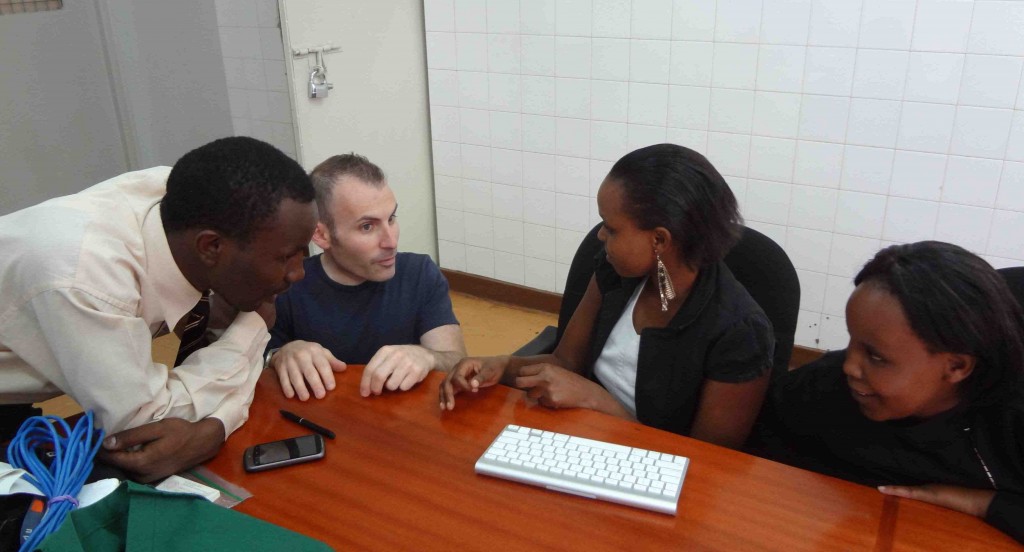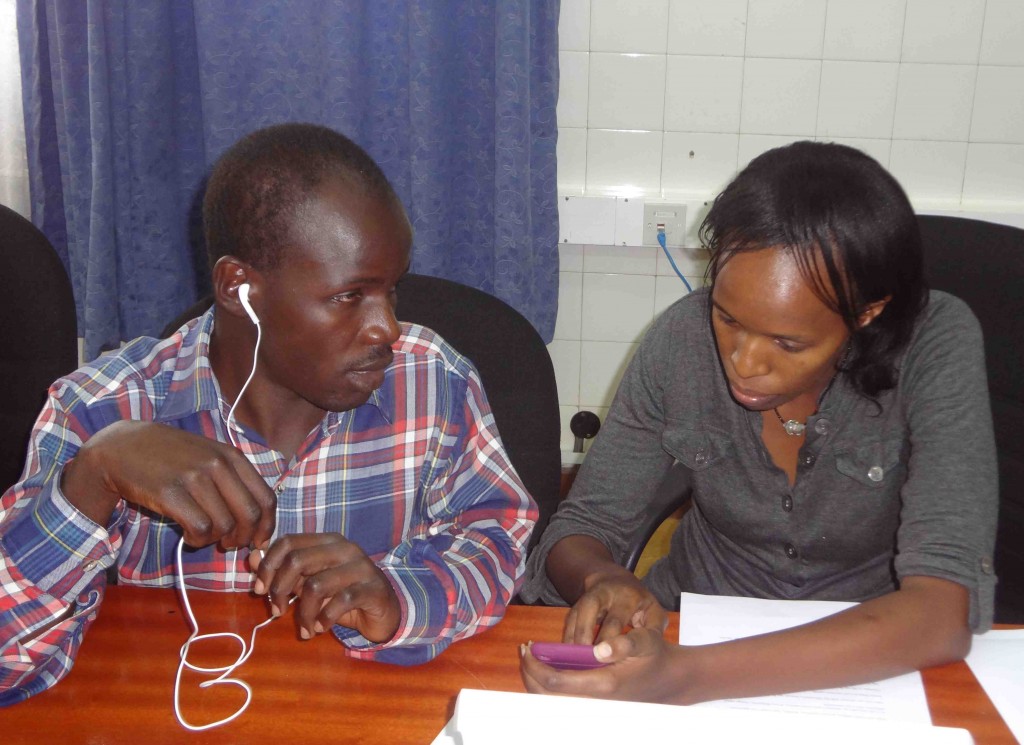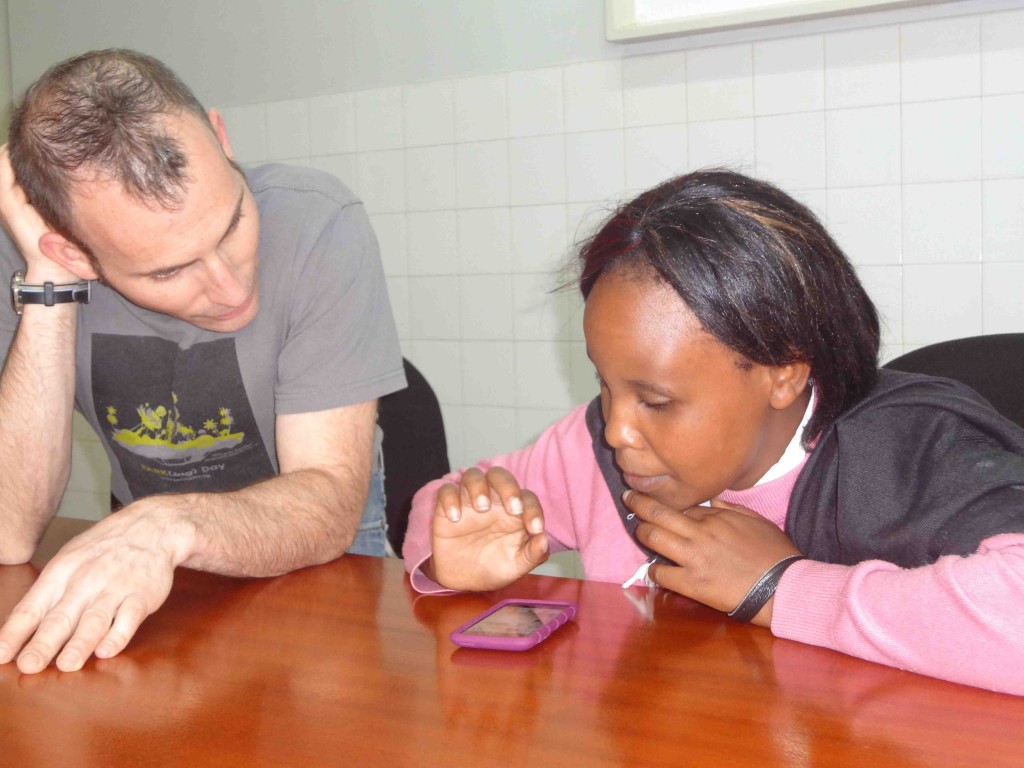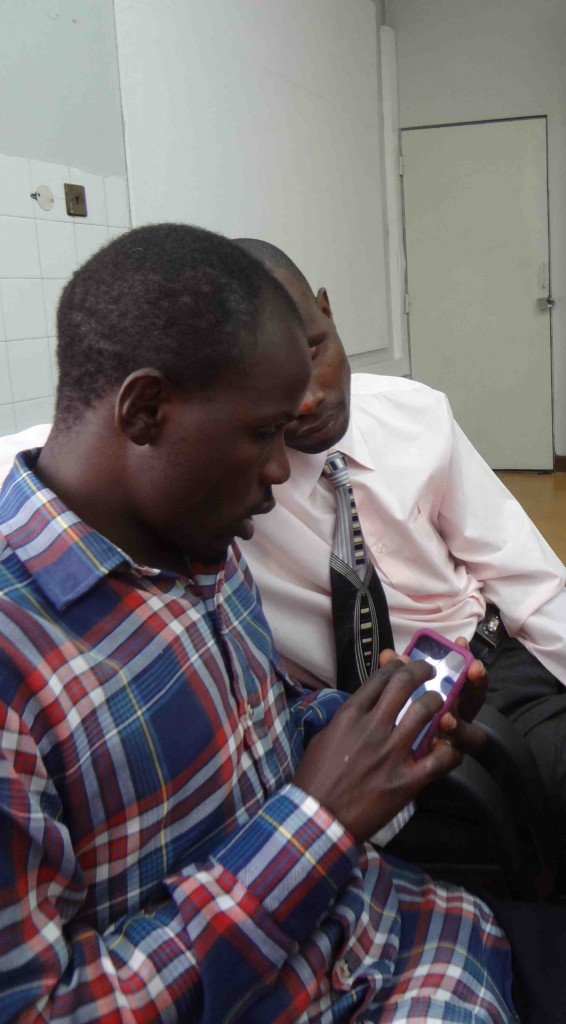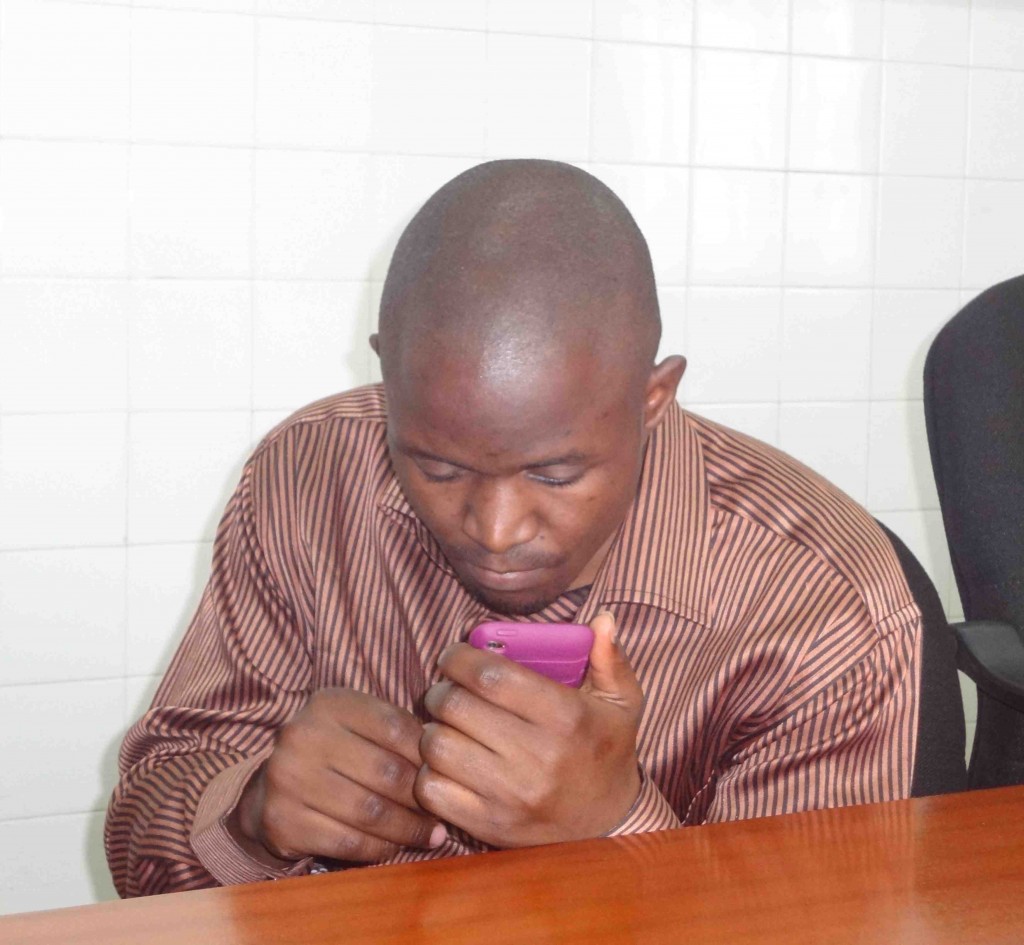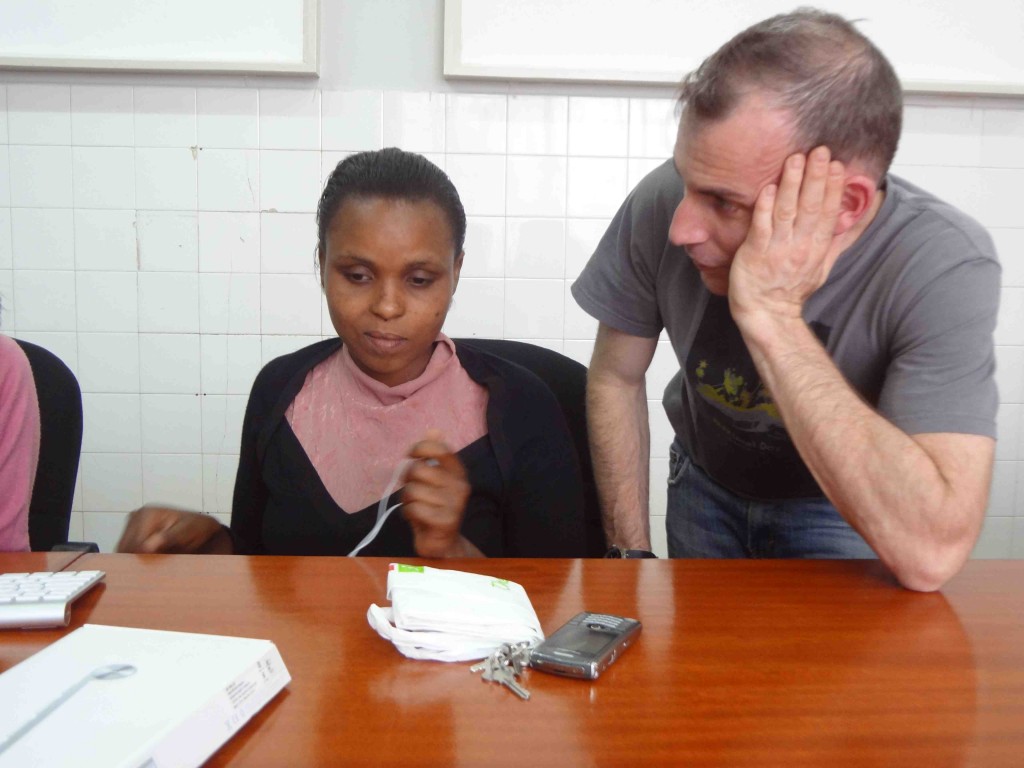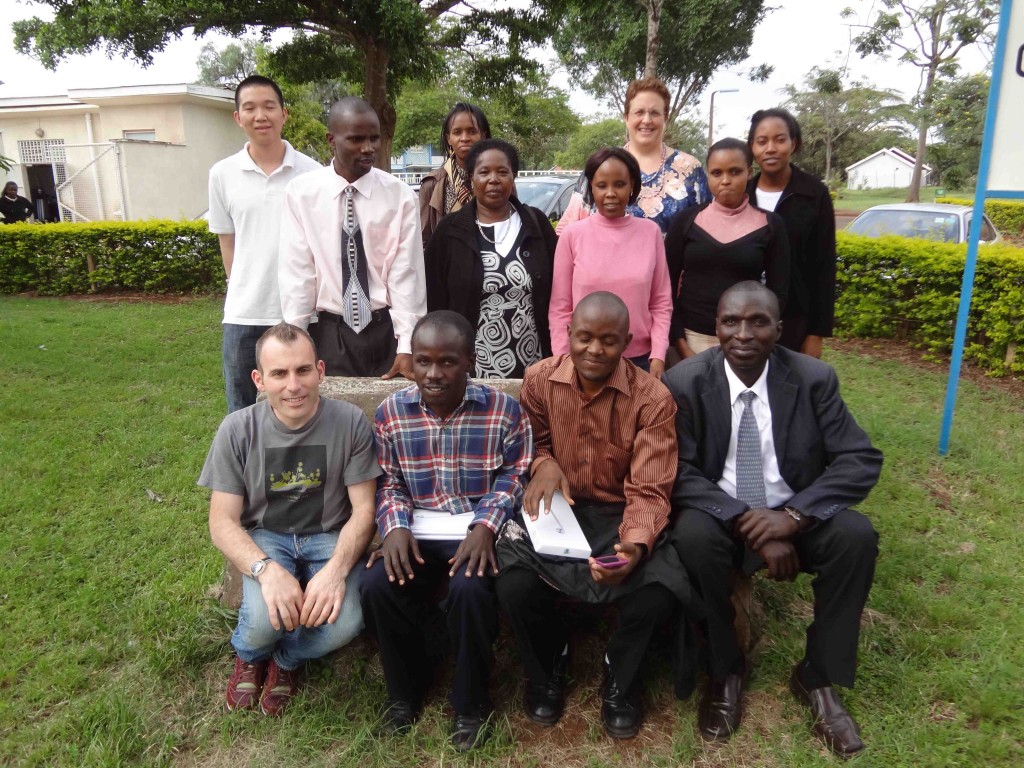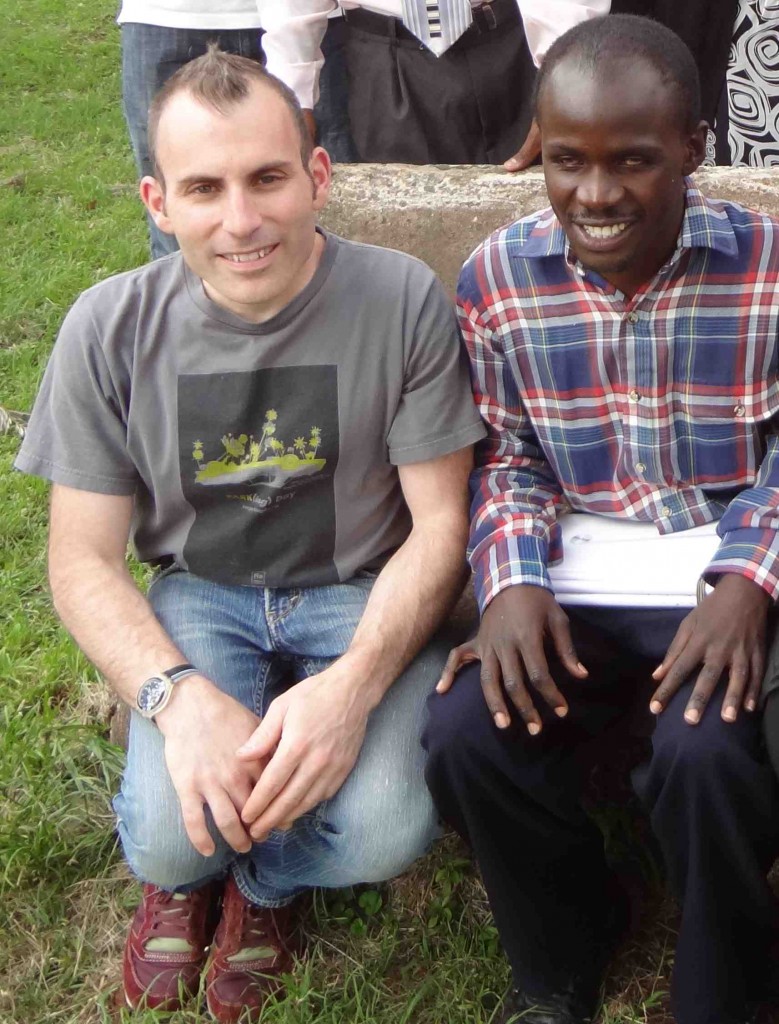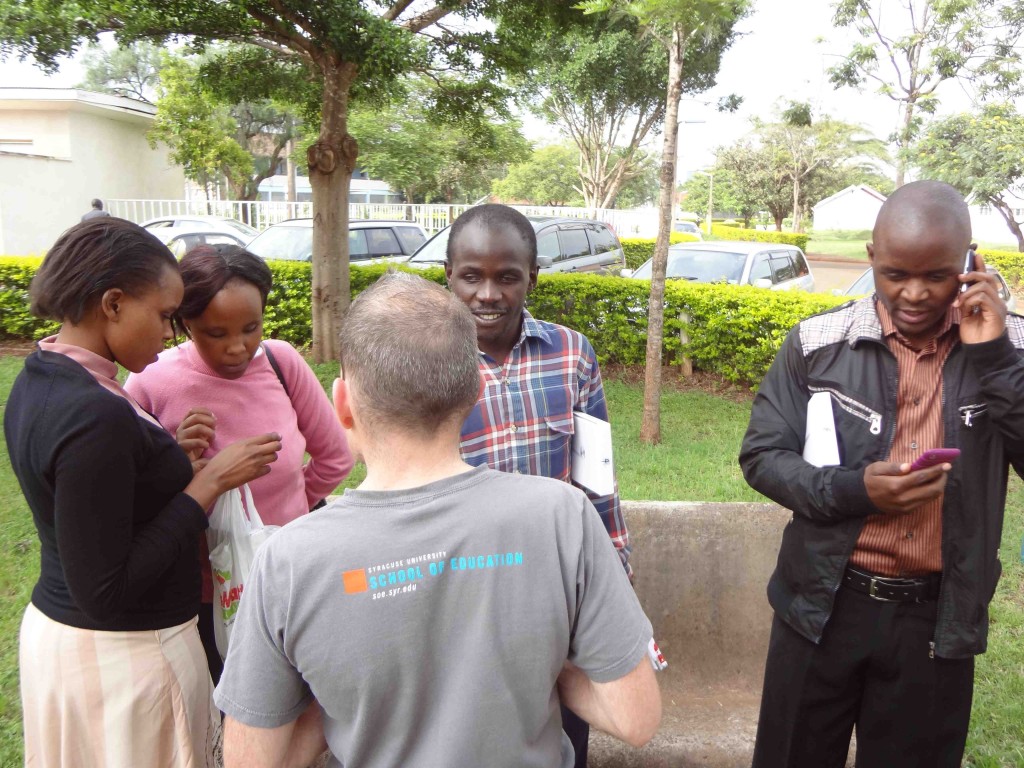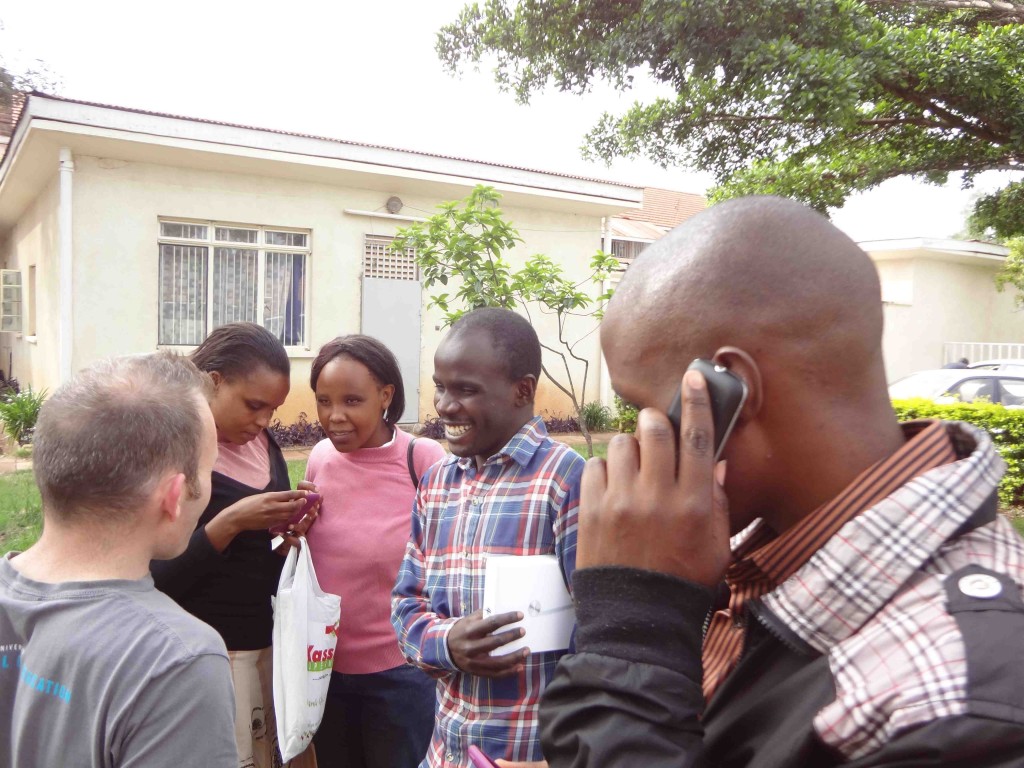One area of capacity building that emerged in the midst of our project is building capacity among students with visual impairments (VI) at Kenyatta University. KU has quite a number of students with VI. These students use Brailler machines in their classes to produce notes in Braille. They also use computer stations in a particular room in the library to use screen readers that can read any text on the computer, on the Internet, in documents, etc.
While these technologies are helpful, they do not give students with VI as much independence as students without VI have. As we were planning to introduce iPads to the KU faculty members, we decided to bring some iPods and keyboards to introduce to some KU students with VI. On the first day, we met four students and some support staff and gave a quick overview of what we would be working on. The next day, we began working with the four students (Sammy Luvonga, Beatrice Mathenge, Silas Opanga, Lucy Waringa). Phoebe Nalwa, from the Office of Disability Services, Terry Njoroge and Martin Gitonga, from the Library, and Dr. Margaret Murugami, a lecturer in Special Education, participated and supported the students. Peter Miheso, a teacher from Kibos School for the Blind in Kisumu, also participated in the workshop.
Alan Foley, associate professor at Syracuse University, first introduced the students to the iPod and using the Voice Over feature. The students learned how to use the iPod by tapping on the screen and learned about some applications (apps). The students were very excited and said they would keep working on becoming familiar with the iPod.
They came back the second day with increased skill levels and Alan introduced them to using a keyboard connected via Bluetooth. The students quickly caught on to using the keyboard to use the iPod instead of tapping on the screen. On the third day, each student set up an iTunes account on his or her iPod and downloaded some free apps. Alan established a wireless network using his mobile phone for the students to use.
By the fourth meeting, the students had made great progress in mastering the apps on their iPods and were creating documents, downloading music, recording videos of things to listen to, listening to text, taking photos of documents and creating OCR (optical character recognition) documents. The students are very enthusiastic about the new technology tools and say that they are greatly impacting their learning and their life.

